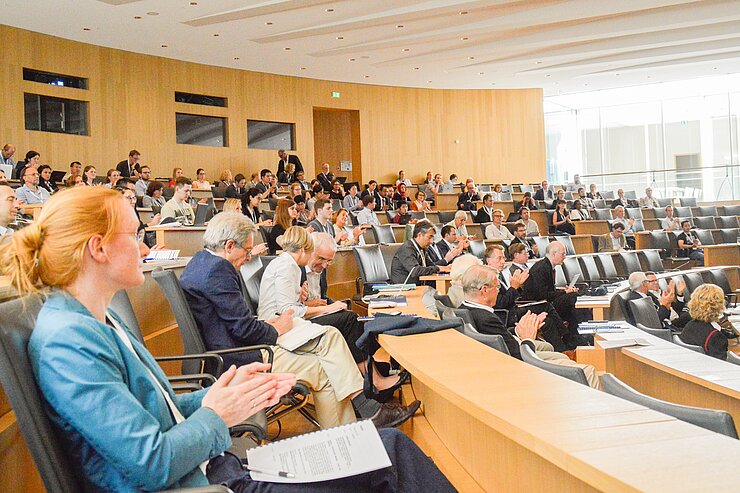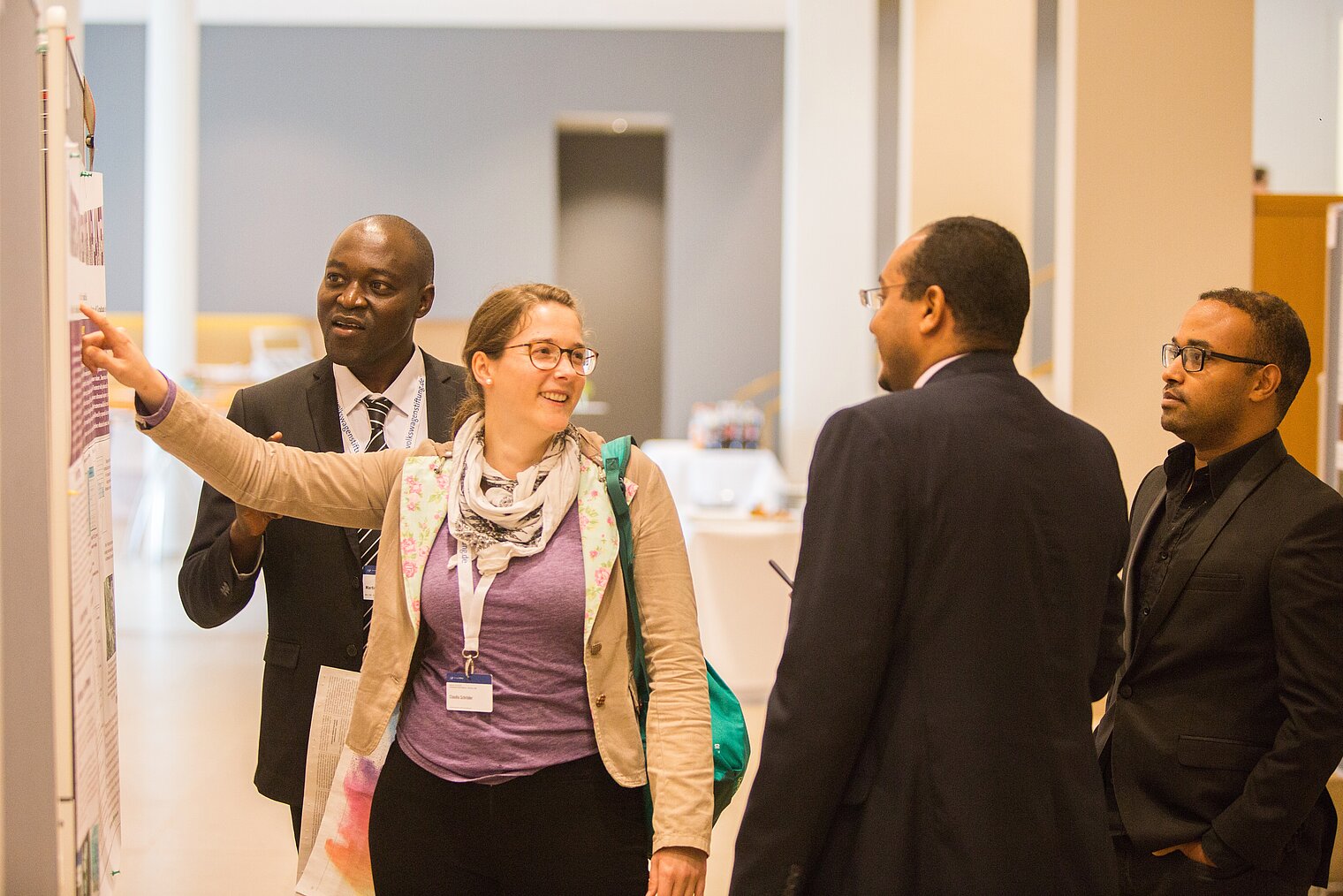Individualised Infection Medicine: The Future is Now
Infektionen sind nach wie vor eine der Haupttodesursachen weltweit. Individuell zugeschnittene Vorsorge und Therapien versprechen neue Heilungsmöglichkeiten. Wie aber ist weltweit der Stand der Forschung und welches sind die drängendsten Fragestellungen – auch aus ethischer, sozialer und ökonomischer Sicht? Expertinnen und Experten diskutierten vom 21. bis 23. Juni im Schloss Herrenhausen, in Hannover.
Infections continue to be amongst the main causes of death throughout the world. New and recurrent infectious diseases, combined with steadily increasing resistance to antibiotics and the global mobility of people, create enormous new challenges for modern medicine. Consequently, therapies must combine maximum efficacy with minimum side effects. Customized strategies for prevention and clinical management are increasingly gaining in importance in this context.
In oncology for example, therapies tailored for the individual patient and his or her specific tumor, are already being applied successfully today. But the promising potential of individualized therapies has hardly been tapped yet in the field of infectious diseases. In order to precisely control the diagnostic clarification and therapeutic intervention in the future, new technologies need to be developed and the existing knowledge needs to be merged.

During the Symposium “Individualized Infection Medicine – The Future is Now” at the Herrenhausen Palace, Hannover, Germany, from June 21-23, 2018 leading experts from science, medicine and pharmaceutical industry as well as representatives of important initiatives in the field of personalized medicine from all over the world reviewed current trends and developments. In seven sessions and two panel discussions focusing on different aspects in personalized medicine as well as five lightning talks from travel grantees and almost 50 poster presentations recent developments in the field of individualized infection medicine were discussed. Also, it was reviewed which developments in other fields of personalized medicine can be adapted to infectious diseases to further develop individualized infection medicine.

Throughout the discussions it was mutually concluded that collecting evidence for the efficacy of personalized medicine and proving its value, both in terms of economics and benefit for the society, will be critical. To reach this, standardization and cooperation across disciplines and borders will be crucial. In addition, education was seen important for the success of personalized medicine. This includes teaching the people in the healthcare system to exploit the developing new tools to leverage the complex data sets arising, but also education of the public.

Further, data access and privacy were discussed. There is common agreement, that existing data in the clinics but also from clinical trials or insurance companies should be made available for the benefit of the patients. It became clear that still many aspects especially with respect to data privacy need to be solved, but that national as well as international initiatives are paving the way to make per se available data better accessible. Another crucial aspect is the quality of available data sets and the expertise to use the modern technologies to analyze the data. The unanimous opinion was that training in this area must be strongly promoted. Furthermore, the current development will change the balance of power in medicine, which must be prepared.
















